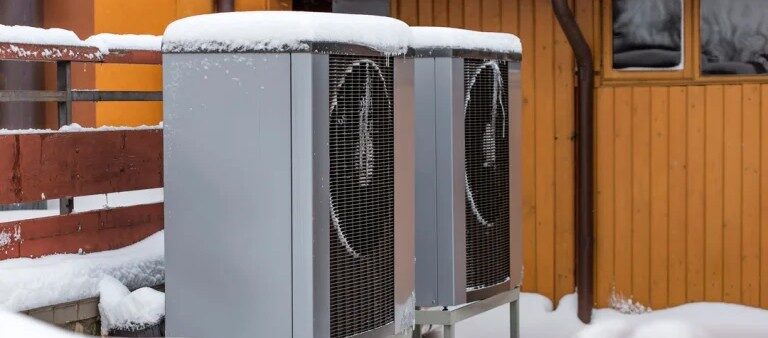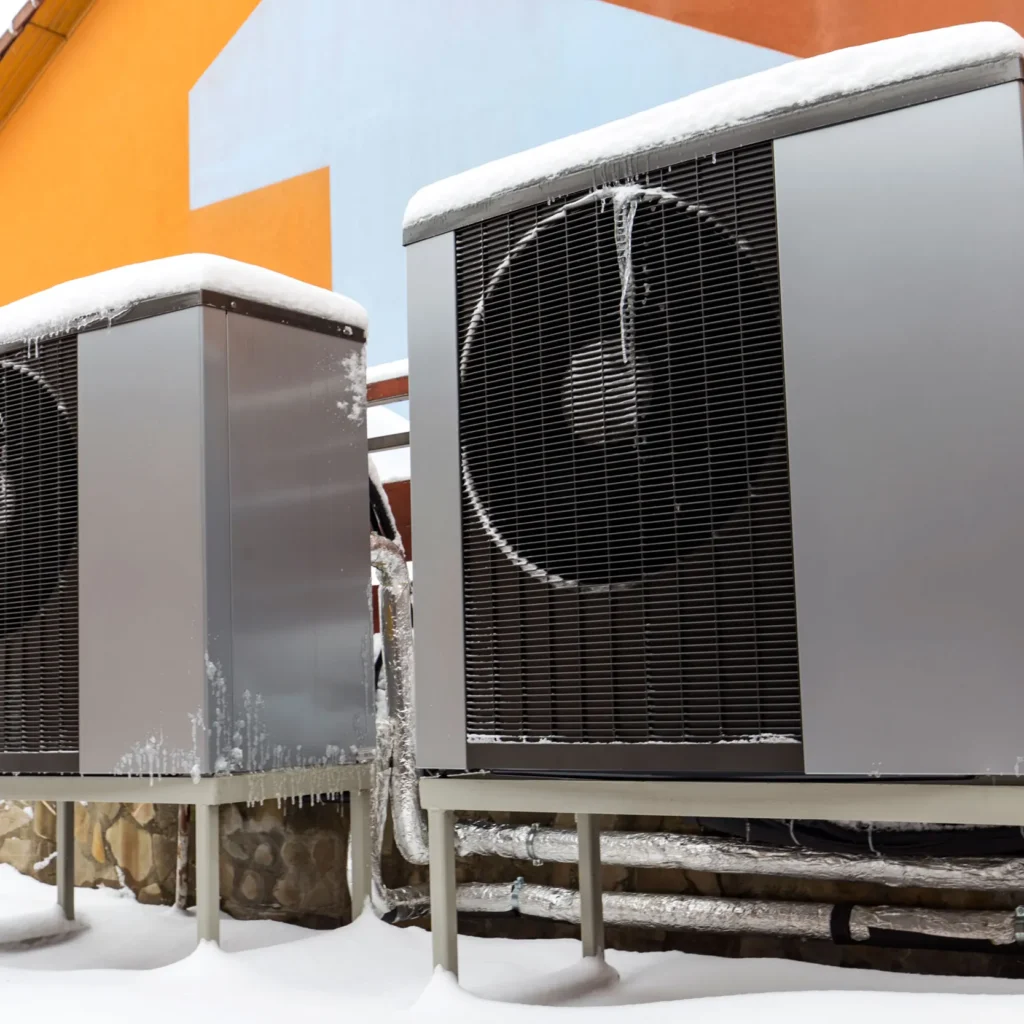Will My Heat Pump Work In Cold Weather?

As the temperatures drop and winter’s chill sets in, many homeowners wonder: “Will my heat pump still keep my home warm?” It’s a common question, and one that’s more important than ever as we seek efficient, eco-friendly heating solutions.
In this article, we explore the mechanics and capabilities of heat pumps in cold weather. Discover how modern advancements have made heat pumps a reliable choice, even in the frostiest conditions.
Whether you’re considering heat pump installation or already have one, we’ll provide you with the answers and tips you need to stay cosy all winter long.
How does a heat pump work?
Fossil fuels continue to pose a significant environmental threat, and global usage has increased eightfold since 1950 (Our World In Data). Heat pumps are helping people reduce their carbon emissions and contribute to the environment.
Three types of heat pumps are available, and houses, apartments, and commercial buildings can install them. Here’s how heat pumps work:
- Collecting heat: Heat pumps collect heat from the air, ground or water, depending on your chosen type.
- Conversion: The heat pump contains refrigerant liquid that absorbs the heat and turns it into gas.
- Compression: Once the gas is created, a compressor increases its temperature for the delivery stage.
- Delivery: When the refrigerant gas reaches the right temperature, it passes through the heat exchanger, providing heating for your property.
Heat pumps can support underfloor heating and warm radiators but can also generate hot water if you install a cylinder.
Does a heat pump work in cold temperatures?
There’s a lot of misconception surrounding heat pumps, with many people believing they don’t work in cold weather. Older heat pumps might struggle, but newer models are capable of functioning in -10℃ temperatures.
Some models provide consistent heat in -25℃ temperatures, highlighting their ability to heat properties throughout winter.
Yes, heat pumps need to work harder in extremely cold climates, but that doesn’t mean they’re unreliable.
Heat pumps in Scandinavia
Heat pumps are still in their infancy here, but other countries have moved away from fossil fuels and embraced them.
Scandinavian countries are much colder than the UK, but Norway, Finland and Sweden have high adoption rates, with each country having over 40 heat pumps per 100 households (Carbon Brief).
Similarly to the UK, Norway offers grants to households that are willing to switch from fossil fuels to clean energy. So, if heat pumps work in cold temperatures that regularly fall below freezing, they can support the UK’s average winter temperature of 2-7℃.
How does cold weather impact air source heat pump performance?
Air-source heat pumps work by collecting heat from the air, which means they’re exposed to the elements. Most are highly durable and can last for years, but they must work harder in cold weather, as there’s less available heat.
The average air-source heat pump might emit more noise in the winter— with levels going up to 60 dB. Investing in a quality heat pump is integral to ensuring it maintains performance, as older models can still shut down.
What about ground-source heat pumps?
A ground-source heat pump can provide year-round consistency if you have a large garden or are willing to pay for vertical boreholes. The earth’s temperatures are always stable, so your ground-source pump won’t need to work harder to power your heating system.

Top tips for maximising your heat pump’s performance
Heat pump technology continues to advance, and that means we can look forward to more durability and consistency in the future. The following tips will maximise your heat pump’s efficiency in colder climates and keep your home warm.
Ensure optimal airflow
Air-source heat pumps should never be covered, as you’ll need to ensure the air can circulate properly. Limiting the airflow can damage the pump and prevent it from performing. There are also higher risks of mould growth, which can impact your property’s structural integrity.
Choosing a reputable installation service means they’ll find the best location for your pump, which won’t be restricted.
Insulation
Poor insulation is a common problem in properties across the UK. It results in excess heating bills as the property can’t prevent heat from escaping. Heat pumps won’t perform as well in homes without insulation, restricting their performance in colder temperatures.
Investing in insulation before installing a heat pump means it won’t have to work as hard as the building can retain heat.
Update the radiators
If your radiators are quite small, it might be worth Installing larger radiators. They can heat rooms quickly and prevent your heat pump from working overtime. Underfloor heating systems are popular for larger properties, as they disperse heat evenly throughout each room.
Remember maintenance
Most heat pumps are easy to manage but require regular maintenance. Visual inspections are OK, but a professional service knows how to assess the pump’s components and will test it for issues. It’s best to arrange your inspection before it gets colder so you’ll have time to fix any faults.
Watch out for the following issues during the winter:
- Ice Build-Up: Seeing snow on your pump is normal, but there should never be ice build-up on the exterior units.
- Rising Energy Bills: It’s natural for your energy bills to rise in the winter, but steep inclines could mean your heat pump can’t generate enough power.
- Cold Air: Heat pumps can heat and cool properties, but they should always provide hot air during the winter. Refrigerant leaks cause excess cold air.
The bottom line
There’s never been a better time to install a heat pump, and acting now means you can enjoy a warm winter. The many grants available also mean you can save up to £7,500 when swapping your boiler for a heat pump. Opting for a reputable heat pump provider gives you peace of mind that the pump will perform in cold weather and reduce energy bills.
If you’d like to explore heat pumps, we offer a full-service solution, from your initial consultation to installation and ongoing maintenance advice. Please feel free to get a quote today and enjoy the convenience of working with Geowarmth.


